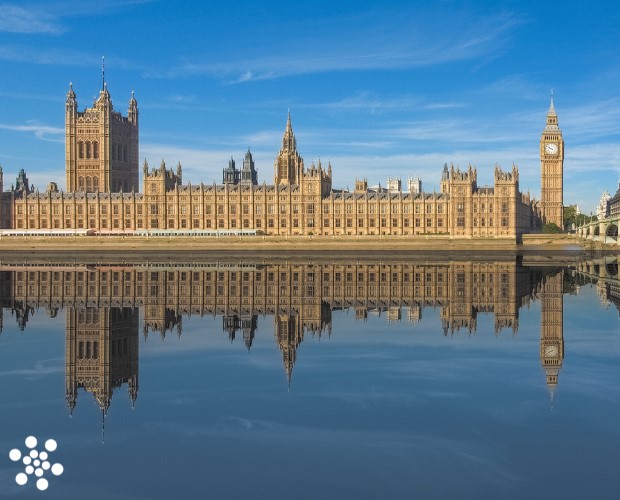T: 01822 851370 E: [email protected]
Hinterland - 5 October 2020

In Hinterland this week - the perennial challenge arising from new rural development, support for the unemployed, rural crime, city flight, new lockdown preparations and finally bring on the jet pack!!
* * *
'No community wants this': Sussex new town plans anger local Tories
This is a strong example of a perennial problem. I for one find Poundbury an attractive concept. I think the opportunity to bake all the things we have learnt about sustainable settlements into new developments which is opened up by the Garden Village concept is really positive. Starting from scratch in managing city flight is perhaps a better opportunity than always bolting things onto established settlements. Still clearly not everyone agrees in this case.
Plans for a new town in rural Sussex backed by one of the Conservative party’s biggest donors and close allies of Prince Charles, are exposing a split in the Tory party over how to rapidly accelerate housebuilding.
Kingswood, a scheme for 2,850 homes, is being proposed on open fields at Adversane near Horsham which have been assembled by hedge fund billionaire Sir Michael Hintze who has given £4.6m to the Conservatives. Its design is partly inspired by Poundbury, the ersatz Georgian town in Dorset created by Prince Charles, and Sir Michael Peat, the Prince of Wales’s former private secretary is a director of the development company.
But it is being opposed by local Conservative MP Andrew Griffith, who said it is “the wrong type of development in the wrong place” and local Tory councillors who have warned: “No community wants this on their doorstep.” It looks set to be a test case for the government’s controversial new planning strategy announced last month which is set to relax national planning rules and set significantly higher local housebuilding targets in areas including Horsham.
New jobs coaches will help people back to work, says Rishi Sunak
I think enterprise, which can work, with the right support, even for the most basic professions, is part of the solution here. I don’t think it would be appropriate to criticise this job coach idea but surely the key thing is to make people able to develop employment opportunities themselves rather than chase an increasingly reduced pool of jobs. This is particularly important in rural settings where the stock of accessible jobs is likely to be most constrained.
Thousands of work coaches will be hired under a new government employment programme to help those who have lost their jobs during the pandemic, amid fresh warnings of an unemployment crisis as the furlough scheme ends.
The £238m job entry targeted support (Jets) scheme will help jobseekers who have been out of work for at least three months. It will be available to people receiving the “all work related requirements” universal credit payment, or the new style jobseeker’s allowance.
The Department for Work and Pensions says Jets will “ramp up support” to help people back to employment, with specialist advice on how to move into growing sectors, as well as CV and interview coaching. It is recruiting an additional 13,500 coaches to help deliver the programme.
The move comes as economists forecast a sharp increase in unemployment this winter, with employers such as Rolls-Royce, Marks & Spencer, Debenhams, Boots and John Lewis all announcing layoffs since the pandemic began. More than a third of businesses plan to cut jobs before the end of the year, a survey last week found.
The chancellor, Rishi Sunak, who will give a speech to the Conservative party conference on Monday, said: “Our unprecedented support has protected millions of livelihoods and businesses since the start of the pandemic, but I’ve always been clear that we can’t save every job.
All eyes on rural areas as police keep up pressure on criminals
This is a local story. It does make me wonder about whether it is something of a one off profile raising rather than a more effective service. I would be interested to see what the evaluation of its longer term impact is. The article tells us:
Focusing on Hambleton, Richmondshire, northern parts of Craven and Ryedale, the A1 in Harrogate, and the A171 Moor Road corridor near Whitby, the operation aimed to ensure criminals could not prey on the county’s rural communities undetected.
From the evening of Wednesday 30 September 2020, into the early hours of this morning, 43 officers from North Yorkshire Police’s Neighbourhood Policing Teams and Rural Taskforce joined 51 Rural Watch volunteers on patrol as part of Operation Checkpoint.
Eighty-five per cent of North Yorkshire is classed as very rural or super-sparse, with a population density five times below the national average – highlighting the importance of information about suspicious activity from members of the public who know their local areas.
Operation Checkpoint aims to ensure these rural communities are ‘no-go areas’ for criminals.
Overnight, officers in North Yorkshire checked more than 80 vehicles, and carried out police checks on more than 20 people to ensure everything was in order. Those deterred by the operation included a group of suspected poachers in the Castleton area.
North Yorkshire Police co-ordinated with colleagues in Cleveland, Durham, Cumbria, Lancashire and Northumbria to provide high-visibility crime-fighting coverage across the North of England.
Sergeant Stuart Grainger, of North Yorkshire Police’s Rural Taskforce, said: “All of us were policing the rural area, looking for cross-border thieves, fly-tippers, poachers, and drink drivers. We were supported by an excellent number of volunteer Rural Watch members, who worked into the early hours.”
Green and pleasant beats urban buzz as families opt to leave cities
I wonder what city flight actual means in the long term for rural communities? I can see why rural places seem like havens to those feeling under pressure from the virus but do they really offer the escape those used to a city life value? This story tells us:
An hour away on the train from London, the cathedral city of Winchester has long appealed to people working in the capital and looking to move out. But the months of lockdown have sent the Hampshire town’s rental market into overdrive, with inquiries over this summer running at 19 times last year’s levels.
Data from two large estate agents, shared with the Observer, shows that the “race for space” and a desire to prepare for a winter spent mainly at home are rapidly reshaping the property market.
Prices are on the increase in green and pleasant commuter towns, while rents for flats in some areas of central London are sharply down, by up to 20%. The Nationwide house price survey showed the average price of a home in the UK last month was just over £226,000, up 5% on a year earlier, and the fastest rate of increase since 2016.
Some of that increase is down to pent-up demand from those who would have moved during lockdown; some is down to the temporary stamp duty cuts. But Robert Gardner, Nationwide’s chief economist, also points to behavioural shifts as people “reassess their housing needs and preferences as a result of life in lockdown”.
Nationwide pointed in particular to the south-west of England and the commuter towns surrounding London, where house prices were up by more than 5% year on year in the third quarter of 2020.
Leak reveals possible harsher three-tier Covid plan for England
I don’t think there is enough scope for rural sensitivity when blanket approaches to lock down are applied across the whole of England. It seems to me that we are sometimes at risk of political correctness trumping insightful approaches through a one size fits all approach. If the approach to managing covid is implemented as per this article I hope it will be more nuanced, in the context of “place” than set out in this article.
A new three-tier lockdown system is being planned for England, with leaked government documents paving the way for potential harsher restrictions including the closure of pubs and a ban on all social contact outside of household groups.
The draft traffic-light-style plan, seen by the Guardian, is designed to simplify the current patchwork of localised restrictions, which apply to about a quarter of the UK. It also reveals tougher measures that could be imposed by the government locally or nationally if Covid cases are not brought under control.
On Sunday the number of cases jumped by 22,961 after it emerged that more than 15,000 test results had not previously been transferred on to computer systems, including for contact tracers.
Called the “Covid-19 Proposed Social Distancing Framework” and dated 30 September, it has not yet been signed off by No 10 and measures could still be watered down.
Alert level 3 – the most serious – contains tougher measures than any seen so far in local lockdowns since the start of the pandemic. They include:
- Closure of hospitality and leisure businesses.
- No social contact outside your household in any setting.
- Restrictions on overnight stays away from home.
- No organised non-professional sports permitted or other communal hobby groups and activities, such as social clubs in community centres.
- Places of worship can remain open.
Schools are not mentioned in the draft. A government source said this was because Boris Johnson had made clear that classroom closures would be a last resort and the reopening of schools was considered within Whitehall to have been a relative success.
Any attempts to impose more stringent measures are expected to provoke renewed anger among Conservative backbenchers, who are likely to demand a vote in parliament should they come into force.
And Finally
Jet suit paramedic tested in the Lake District 'could save lives'
Its not April the first but surely this article comes from an episode of the Incredibles rather than real life! It tells us:
A jet suit for paramedics which would see patients reached in minutes by a "flying" medic has been tested by the Great North Air Ambulance Service.
After a year of talks between GNAAS and Gravity Industries, a first test flight was carried out in the Lake District.
Andy Mawson, director of operations at GNAAS, came up with the idea and described seeing it as "awesome".
He said it meant a paramedic could "fly" to a fell top in 90 seconds rather than taking 30 minutes on foot.
Mr Mawson said: "There are dozens of patients every month within the complex but relatively small geographical footprint of the Lakes.
"We could see the need. What we didn't know for sure is how this would work in practice. Well we've seen it now and it is, quite honestly, awesome."
Mr Mawson said the exercise had demonstrated the huge potential of using jet suits to deliver critical care services.
About the author:
Hinterland is written for the Rural Services Network by Ivan Annibal, of rural economic practitioners Rose Regeneration. |
YOU MAY ALSO BE INTERESTED IN
SIGN UP TO OUR NEWSLETTER
Sign up to our newsletter to receive all the latest news and updates.










